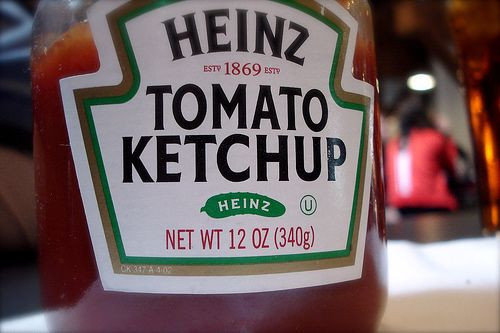France Squeezes Out Ketchup from School Menus

The reason why France banned ketchup in elementary schools and colleges' cafeterias apparently has to do with cultural reasons, according to numerous reports.
Newspapers reported that the French government banned the iconic American sauce made from tomatoes, vinegar, sugar and spices in schools and colleges' cafeterias in nearly all dishes but French fries.
As a result, students will not be offered ketchup when traditional French dishes are served, reports the Los Angeles Times.
"We have to ensure that children become familiar with French recipes so that they can hand them down to the following generation,” Christophe Hebert, chairman of the National Association of Directors of Collective Restaurants said according to The Telegraph.
“We have to stop children from being able to serve those sauces. Children have a tendency to use them to mask the taste of whatever they are eating,” he added.
The negative impact of the ban on the industry remains to be seen. Heinz alone - the company that made ketchup famous in 1876 - sells 650 million bottles of ketchup every year and the equivalent to 2 single-serve packets of ketchup for every man, woman and child on the planet, according to the company's website.
Nevertheless France states that by banning ketchup the country is setting an example to the world.
“France must be an example to the world in the quality of its food, starting with its children,” said Food and Agriculture Minister Bruno Le Maire, according to the L.A. Times.
Is Ketchup Healthy?
Ketchup is made from tomatoes, vinegar, sugar and spices. It contains 15 calories per tablespoon, has no fat and contains vitamins A and C.
Its main ingredient, tomatoes, are the richest source of lycopene, a pigment that is known to lower heart disease risk, according to a study from Harvard School of Public Health in Boston in 2004.
Women who had higher levels of lycopene in their blood had 50% lower risk of developing heart disease, according to that study.
In that research, the authors recommended that people ingest two servings per day of tomatoes or any tomato product including ketchup since lycopene is best absorbed when it comes from cooked and processed foods.
How much is too much?
According to a report from the Food Network, two ingredients of ketchup, salt and sugar can be damaging if ingested in excess.
Eight tablespoons of ketchup daily equal the total amount of salt needed in an entire day. Also, most sugar in ketchup comes from added sugar, which may be damaging, and not natural sugar found in tomatoes.
Published by Medicaldaily.com



























